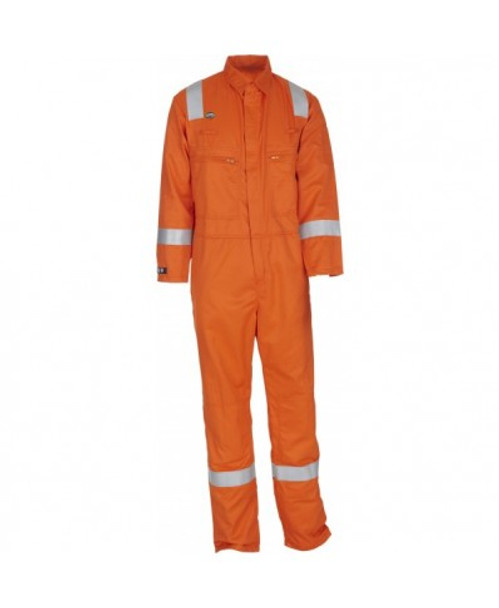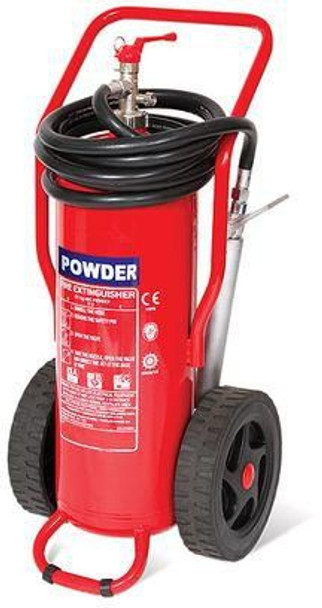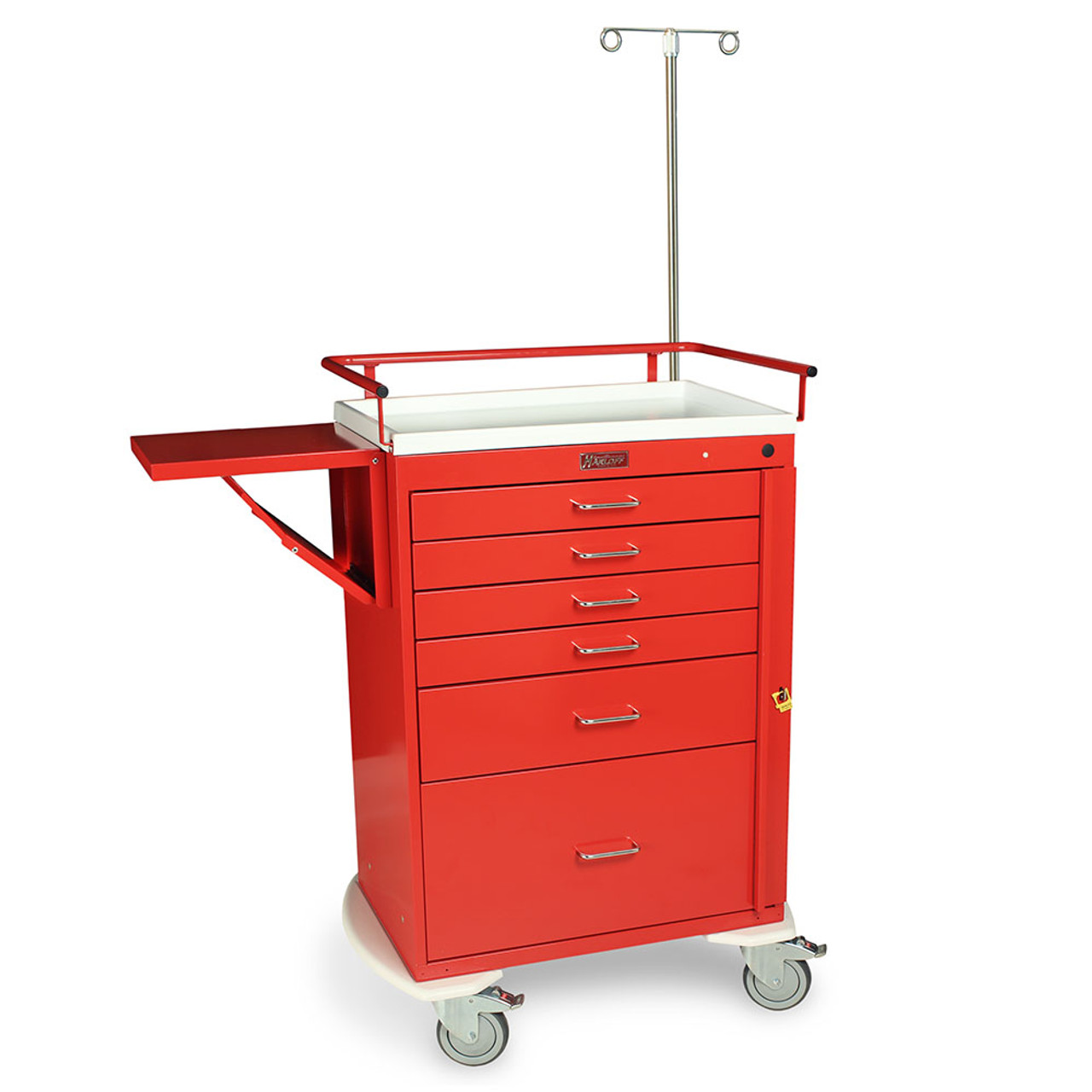Essential Safety Equipment for Offshore Operations: A Port Harcourt Perspective
The City of Port Harcourt, is in the heart of Nigeria's oil-rich Niger Delta and very prominent in the global oil and gas industry. As offshore operations continue to expand in the Gulf of Guinea, the imperative for robust safety measures has never been more critical. This article dives into the essential safety equipment required for offshore operations, viewed through the unique lens of Port Harcourt's oil and gas sector.
The Paramount Importance of Offshore Safety
Offshore operations in the waters off Port Harcourt present a complex set of challenges that demand attention to safety. The harsh marine environment, coupled with the inherent risks of oil and gas extraction, creates a scenario where the right safety equipment can mean the difference between smooth operations and catastrophic incidents. In recent years, the Nigerian oil and gas industry has made significant strides in improving safety standards, largely driven by increased awareness, stringent regulations, and the adoption of international best practices.
Flame Retardant Coverall Hellog
Personal Protective Equipment: The First Line of Defense
At the forefront of offshore safety is Personal Protective Equipment (PPE). In the humid, often unpredictable climate of the Niger Delta, PPE must not only provide protection but also ensure comfort for prolonged use. Standard PPE for offshore workers in Port Harcourt typically includes flame-resistant coveralls, safety boots with anti-slip soles, hard hats, safety glasses, and gloves. However, the challenging offshore environment necessitates additional specialized equipment.
One crucial piece of PPE for offshore operations is the life jacket or personal flotation device (PFD). Given the constant proximity to water, these must be worn at all times when working on deck. Modern PFDs used in Port Harcourt's offshore operations are designed to be comfortable for extended wear while providing excellent buoyancy and visibility in case of emergencies. Many are equipped with water-activated strobe lights and whistles to aid in rescue operations.
Another critical component of offshore PPE is respiratory protection. The presence of harmful gases, particularly hydrogen sulfide (H2S), is a significant concern in many offshore operations. Workers are equipped with emergency escape breathing devices (EEBDs) that provide a short-term air supply in case of sudden gas releases. For more prolonged exposure risks, self-contained breathing apparatus (SCBA) systems are essential, allowing workers to safely navigate hazardous areas or perform emergency response duties.
Ingco Safety Harness Full Body Protection Kit
Fall Protection: Safeguarding Against Gravity
The vertical nature of many offshore structures, combined with often slippery conditions, makes fall protection equipment indispensable. In Port Harcourt's offshore sector, comprehensive fall protection systems have become standard. These typically include full-body harnesses, lanyards, and anchor points strategically placed throughout the offshore facility.
Modern fall protection equipment used in Port Harcourt goes beyond basic harnesses. Self-retracting lifelines (SRLs) have gained popularity due to their ability to provide freedom of movement while instantly locking in case of a fall. For work in confined spaces, such as storage tanks or vessel holds, specialized retrieval systems are employed. These allow for quick extraction of workers in case of emergencies, a critical feature given the complex layouts of many offshore structures.
Fire Safety Equipment: Prepared for the Worst
The risk of fire is ever-present in offshore operations, making robust fire safety equipment a non-negotiable aspect of offshore safety. Port Harcourt's offshore facilities are equipped with advanced fire detection and suppression systems. These include state-of-the-art smoke and heat detectors, linked to central alarm systems that can pinpoint the exact location of a fire outbreak.
Fire suppression equipment on offshore platforms typically includes a combination of water deluge systems, foam generators, and portable fire extinguishers. The choice of fire suppression method is crucial, as water-based systems may not be suitable for all types of fires encountered in offshore operations. Dry chemical and CO2 systems are often used in areas with electrical equipment or where water could interact dangerously with the materials present.
Another critical component of fire safety in Port Harcourt's offshore operations is the provision of fire-resistant lifeboats and escape pods. These vessels are designed to protect occupants from the intense heat of a fire while providing a means of rapid evacuation from the platform.
DCP 50kg Fire Extinguisher On Wheels
Emergency Response and Rescue Equipment
The remote nature of offshore operations necessitates comprehensive emergency response capabilities. Port Harcourt-based offshore facilities maintain a array of rescue equipment designed to handle various emergency scenarios. This includes equipment for man-overboard situations, such as fast rescue craft (FRC) and recovery nets.
For medical emergencies, offshore facilities are equipped with well-stocked medical bays and specialized evacuation equipment. Stretchers designed for vertical lifting are particularly important, allowing for the safe transfer of injured personnel from lower decks or confined spaces to helicopter landing pads for rapid medical evacuation.
Environmental Protection Equipment
While not directly related to personnel safety, environmental protection equipment is a crucial aspect of offshore safety in Port Harcourt. Oil spill response equipment, including containment booms, skimmers, and dispersant systems, is maintained in a state of readiness. This equipment not only protects the environment but also safeguards the health and safety of workers and nearby communities that depend on the marine ecosystem.
Training and Simulation Equipment
The effectiveness of safety equipment is only as good as the training of the personnel using it. In Port Harcourt, offshore operators invest heavily in training and simulation equipment. This includes advanced simulators for helicopter underwater escape training (HUET), fire fighting training facilities, and mock-up structures for practicing confined space rescues and evacuations.
EMERGENCY CART
Conclusion
The landscape of offshore safety equipment in Port Harcourt is one of continuous evolution and improvement. As new technologies emerge and lessons are learned from incidents both local and global, the arsenal of safety equipment continues to expand and refine. The commitment to safety in Port Harcourt's offshore operations reflects not just regulatory compliance, but a deeper understanding of the value of human life and environmental stewardship.
For companies operating in or supplying to the offshore sector in Port Harcourt, staying abreast of the latest developments in safety equipment is crucial. At GZ Industrial Supplies Nigeria, we are committed to providing cutting-edge safety solutions that meet the unique challenges of Port Harcourt's offshore environment. Our range of safety equipment is continually updated to reflect the latest advancements and best practices in offshore safety.
Whether you're looking to upgrade your existing safety equipment or seeking comprehensive safety solutions for new offshore projects, GZ Industrial Supplies Nigeria is your trusted partner. Contact us today at sales@gz-supplies.com or visit our website at www.gz-supplies.com to learn more about how we can support your commitment to offshore safety in Port Harcourt.
Related Content
- Top 10 Best Personal Protective Equipment (PPE) for 2025: Safeguarding Nigerian Oil Workers
- The Best Fire Safety Systems of 2025: Protecting Offshore Facilities in Nigeria
- Cutting-Edge Environmental Protection Equipment for Nigeria's Oil and Gas Industry in 2025
- Advanced Emergency Response Solutions for Offshore Operations in Nigeria: 2025 Outlook
Recent Posts
-
Top 5 OBD2 Scanners for DIY Car Diagnostics in 2025
Top 5 OBD2 Scanners for DIY Car Diagnostics DIY car maintenance is booming in 2025, and having the r …Apr 26, 2025 -
Agricultural Sprayer and its uses
Introduction Agricultural sprayers are a special type of farm equipment used for applying liquid sub …Apr 25, 2025 -
Why Serious Mechanics Are Switching to Japanese-Made Shinano Air Tools
Japanese-Made Shinano Air Tools Key takeaway: Shinano’s tight-tolerance, twin-hammer designs d …Apr 24, 2025










